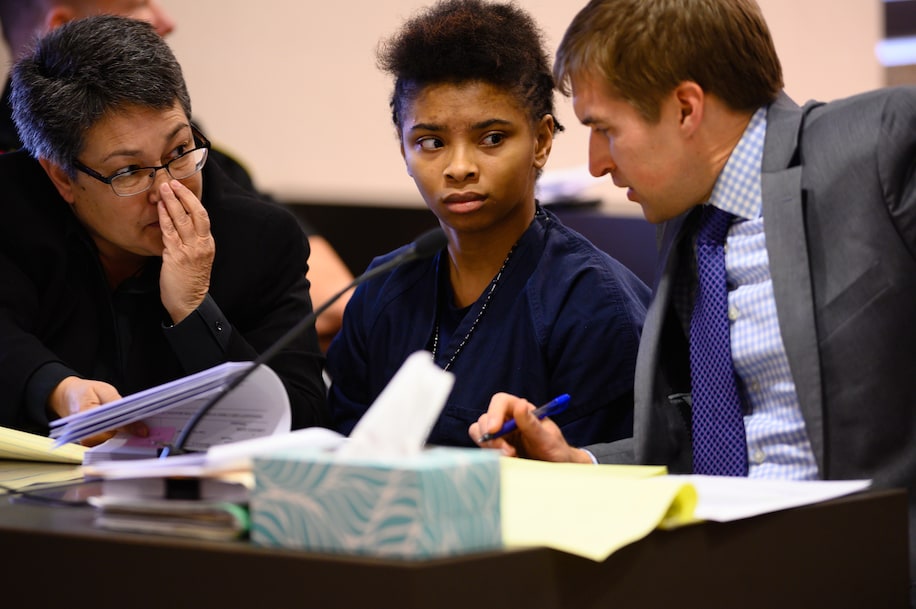
Chrystul Kizer
Kyle Rittenhouse was acquitted of all counts of murder Friday, after moving across state lines and shooting three victims, killing two: Gaige Grosskreutz, Joseph Rosenbaum, and Anthony Huber. His release raises questions about who the justice system is built for-when someone with an AR-15 purposefully shows his weapon, and shoots people with abandon is freed, while in Kenosha another 17-year-old is facing murder charges, for killing her sexual abuser. Rittenhouse is a white boy, Chrystul Kizer a black girl.
She is still facing first degree homicide charges in the city of Kenosha, which carries an automatic life sentence, for killing Randall Phillip Volar III, a man who had been sexually abusing her for two years, when Kizer was a homeless teenager. She is still awaiting justice.
Volar III, a white man, had had prior evidence of abuse of young girls, already known to Kenosha police. He was arrested in February of 2018, after drugging and attempting to harm another 15-year-old. Police arrested him and then released him without bail. He remained free for weeks, while investigators found multiple videos of child abuse. On the day that Kizer acted in self-defense, Volar had drugged her and attempted to rape her. She killed him to get away.
The Kenosha police still want her in prison for life.
Volar should not have been freed when investigations found hundreds of videos of child abuse, including the ones he had filmed of Chrystul. Under federal law, Chrystul’s case should have been reviewed with her as a victim of trafficking (she was seventeen), and while it would be unclear whether she is entitled to the use of affirmative defense, the parallels with how the justice system is treating her-a victim of child sex-trafficking at the hands of an abuser-and Rittenhouse-a white boy who had clear intentions of going to shoot someone when he crossed state lines-is telling.
Her case is also revealing of a-hopeful-shift in how we discuss victims of child rape victims, “How her case is decided could shape how future crimes involving victims of trafficking are litigated—particularly those in which child victims of trafficking have killed their alleged abusers. In the past decades, those teenagers were painted by prosecutors as ‘child prostitutes’ who were out to rob their clients.
“But in recent years, courts, governors and state legislators have been reexamining such cases with a new understanding of the unique trauma child trafficking victims endure. Most of those cases have involved children of color.”
Chrystul won an appeal this past June, and instead of dropping the case, the state has requested that the Wisconsin Supreme Court review her case. Her ruling could have important implications for those survivors of child sexual abuse-and trafficking-who have killed their abusers in self-defense. If she loses, she faces, at minimum, a sixty-year prison sentence.
Whether she is successful, though, it remains clear that the criminal justice system was not built to be Chrystul’s advocate and would rather imprison her for life. And would defend Rittenhouse’s freedom tooth and nail.
(By Nichole Smith)
(Photo Credit: Washington Post / Sarah L. Voisin)